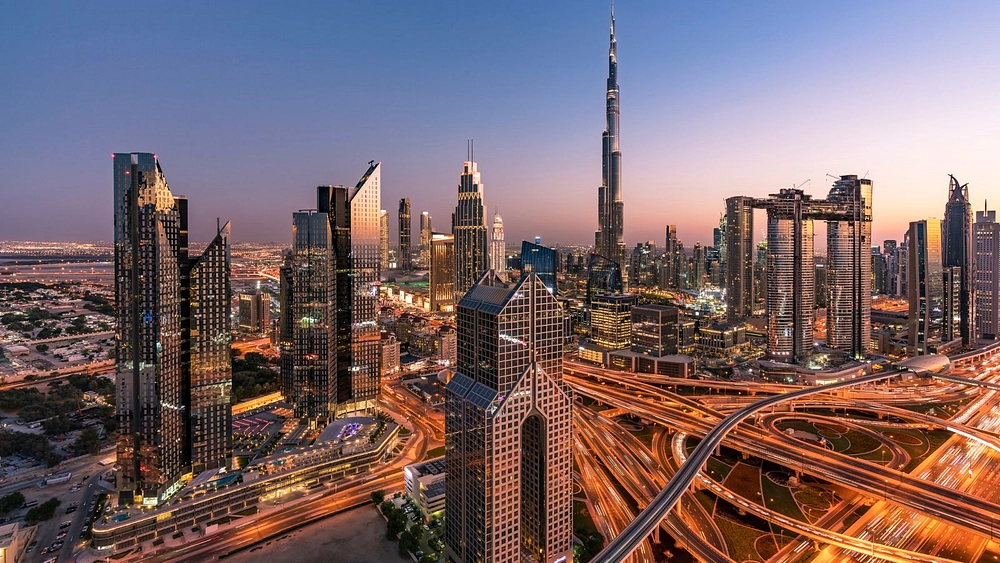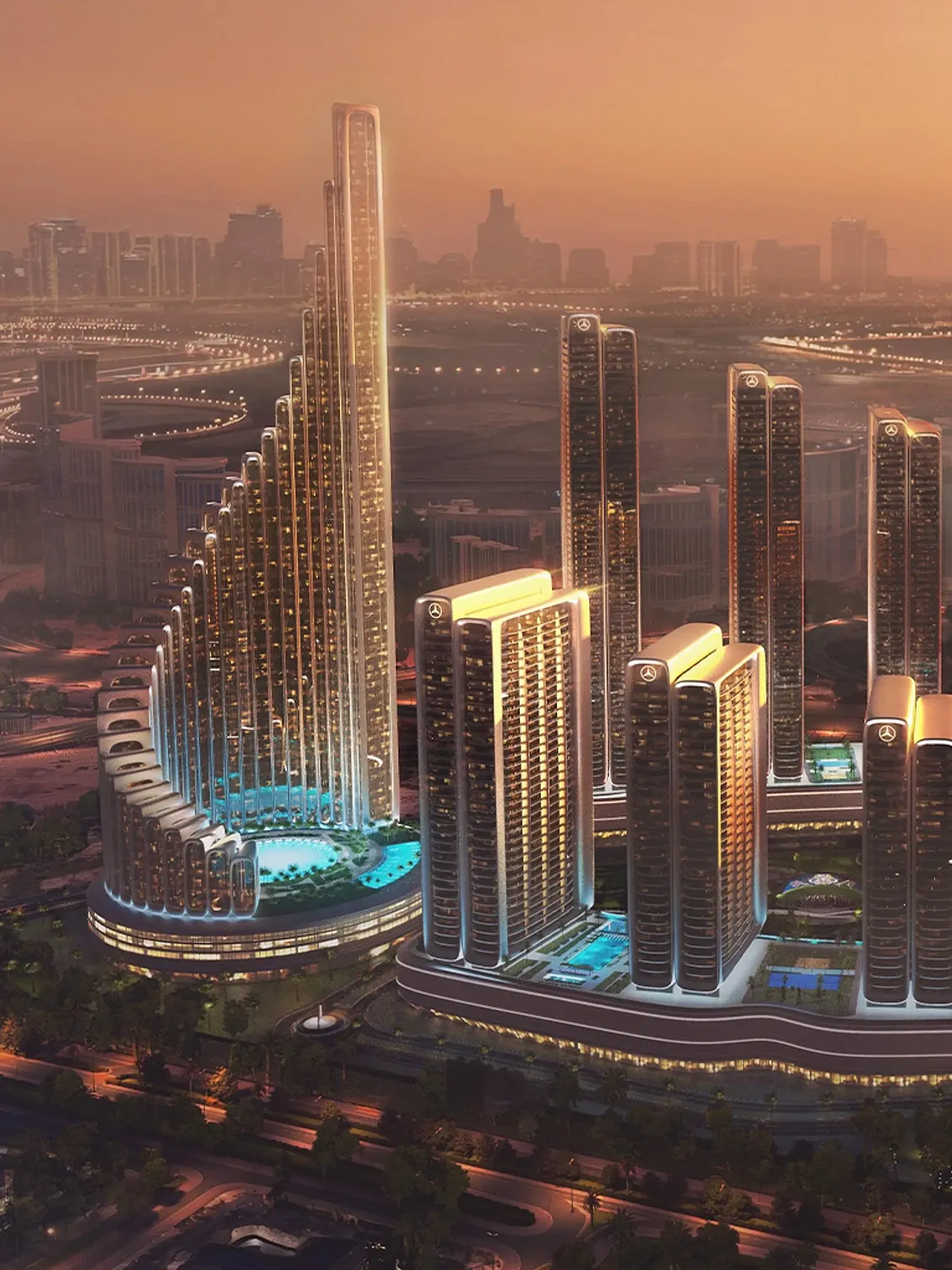Signature Collection
Explore SignatureDubai’s real estate market has long been a dynamic sector characterized by rapid growth, technological innovations, and ever-evolving trends. As the city’s population continues to surge and new developments emerge, the relationship between supply and demand becomes increasingly important. With projections indicating a population increase to 5.8 million by 2030, understanding the supply dynamics of Dubai’s real estate market will be essential for investors and homeowners alike.
In this blog, we’ll explore current Dubai’s real estate supply and demand landscape, the projected trends shaping the industry, and provide insights on how these factors influence investment opportunities. Whether you are a first-time buyer or an experienced investor, staying updated on these market shifts is crucial for making informed decisions.

Dubai Property Market Trends 2024
As of 2024, Dubai is witnessing substantial development, with a population of 3.77 million, according to the Dubai Statistics Center (DSC). The city's housing stock has expanded, with 553,413 units already completed, and a ratio of 2.72 people per unit. Additionally, Dubai is home to over 21,000 holiday homes, pushing the ratio to 2.83 people per unit.
Key Drivers of Demand:
- Population Growth: Dubai’s population continues to grow steadily, with an expected increase to 5.8 million by 2030, further fueling housing demand.
- International Appeal: Dubai’s favorable tax environment and status as a global business hub continue to attract expatriates and investors.
- Attractive ROI for Investors: Investors continue to see high returns, with Dubai offering an average ROI of 30% from off-plan property reservations.
Projected Growth and Impact on Housing Supply
Looking ahead, Dubai’s real estate market is set to deliver a significant increase in supply. By 2025, 71,610 units are projected to be completed, and by 2026, this number will grow to 78,214 units. Areas like Business Bay, Jumeirah Village Circle (JVC), and Al Furjan are expected to see the highest number of new units. The total units expected to be completed by 2029 in Dubai are 840,795. However, with construction dropping by 300,000 units since 2019, there could be supply shortages in certain regions.
Real Estate Oversupply in Dubai – Is It a Concern?
Dubai's real estate market has often been discussed in terms of potential oversupply. However, while the number of property listings continues to grow, many key areas, including Dubai Creek Harbour, Dubai Marina, and Downtown Dubai, maintain strong demand, especially in the luxury and mid-market segments. This ensures that supply and demand are well balanced in these high-demand locations.
Key Factors Ensuring Continued Demand
- Drop in Construction Activity: A reduction in the number of new construction projects since 2019 has worked to prevent an oversupply. The decreased rate of new developments has helped stabilize the market, ensuring that demand continues to exceed supply in prime areas.
- High Demand in Prime Locations: Areas like Dubai Creek Harbour and Dubai Marina remain highly sought after. Their prime locations, along with world-class developments, continue to attract residents and investors alike, keeping demand consistently high. These areas offer unparalleled amenities and are central to Dubai's modern urban lifestyle.
- International Investment: Dubai's real estate sector is still experiencing strong foreign investment, particularly in luxury properties. The city's attractive tax environment, along with its status as a global business hub, ensures that the demand for high-end properties remains robust.
- Golden Visa for Investors: High net-worth investors in Dubai's real estate market benefit from a structured golden visa facility for residency, adding an extra layer of attraction for those seeking long-term investments.
- World-Class Infrastructure: Dubai offers unparalleled, world-class infrastructure, setting it apart. The city's infrastructure surpasses standards in other parts of the world, making it an enticing prospect for investors seeking sustainable growth.
Factors Affecting Dubai’s Real Estate Supply and Demand
Several factors are influencing the dynamics of Dubai's property market, leading to fluctuations in supply and demand.
1. Population Growth
Dubai’s population is projected to grow to 5.8 million by 2030, which will increase the demand for residential properties. According to a recent recruitment report, a large portion of this growth comes from white-collar workers, who make up 40% of the resident population.
2. Economic Recovery
Dubai’s post-pandemic recovery has stabilized the real estate sector. With key sectors like tourism, retail, and finance on the rebound, the market is seeing strong investor confidence.
3. International Appeal
Dubai’s status as a global business hub, along with its favorable tax regime, continues to draw international investors, especially as higher taxes in Europe and other regions drive more people to the city.
Real Estate Investment in Dubai – Why It’s Still a Prime Opportunity
Dubai continues to be a top investment destination, offering robust returns for investors. Off-plan properties offer high returns, with investors seeing up to 30% returns within six months of reservation.
Benefits for Investors:
- Tax-Free Ownership: Dubai offers tax-free property ownership for foreign investors.
- Attractive ROI: Investors can expect significant returns, particularly in growing areas such as Dubai Creek Harbour and Meydan.
- Flexible Payment Plans: The city’s flexible payment options make real estate investment more accessible.
The Future of Dubai’s Real Estate Market
The future of Dubai’s real estate market looks promising, with several mega-projects underway, such as Expo City and DAMAC Islands. Key trends such as smart homes, sustainability, and affordable luxury properties are shaping the future landscape.
Trends Shaping the Future:
- Smart Homes: As technology continues to evolve, smart homes are becoming standard in Dubai, enhancing the quality of life for residents.
- Sustainability: Eco-friendly developments are on the rise, aligning with the UAE's goal to achieve net-zero carbon emissions by 2050.
- Affordable Luxury: More developers are focusing on offering affordable luxury properties that cater to a broader range of buyers.
FAQs About Dubai Real Estate Supply and Demand
Smart cities will incorporate advanced technology into urban living, making Dubai an even more attractive place for real estate investments.
Investors should pay attention to sustainability, smart home technology, and affordable luxury properties as these will drive the future of Dubai real estate.
Dubai’s real estate market is poised for continued growth, with rising demand for sustainable, tech-enabled, and luxury living solutions.
We can safely say no. In fact, due to the secure and steady nature of Dubai's real estate market, there is a significant upsurge in demand for properties. Also, those who have seen Dubai's property market up close in recent years acknowledge its resilience against unforeseen circumstances (such as COVID-19) and ability to adjust to changing market dynamics.
For more information, get in touch with us at Provident
 Apartments
Apartments Villas
Villas Townhouses
Townhouses Penthouses
Penthouses Commercial
Commercial See All Properties
See All Properties Commercial
Commercial Property Management
Property Management List Your Property
List Your Property Mortgages
Mortgages Conveyancing
Conveyancing Short Term Rentals
Short Term Rentals Property Snagging
Property Snagging Partner Program
Partner Program Currency Exchange
Currency Exchange PRYPCO
PRYPCO Ethnovate
Ethnovate Plots
Plots

